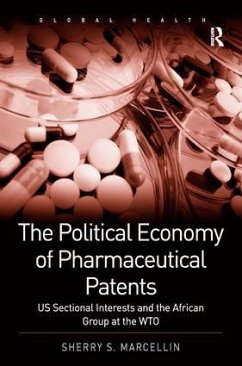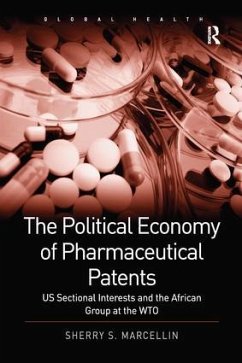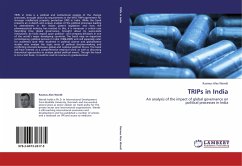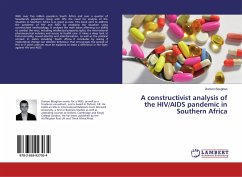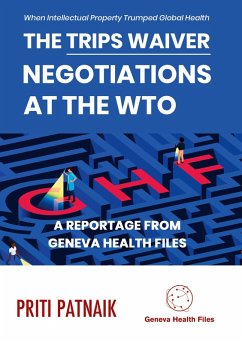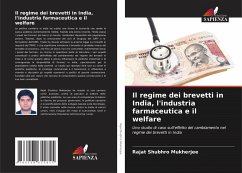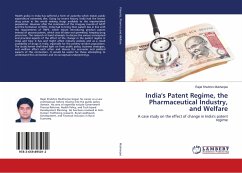
India's Patent Regime, the Pharmaceutical Industry, and Welfare
A case study on the effect of change in India's patent regime
Versandkostenfrei!
Versandfertig in 6-10 Tagen
43,99 €
inkl. MwSt.

PAYBACK Punkte
22 °P sammeln!
Health policy in India has suffered a form of austerity which makes public expenditure extremely slim. Going by recent history, India had the lowest drug prices in the world making drugs available to the impoverished population. However after the conclusion of the Uruguay rounds of GATT and the formation of WTO, India had to bring their patent law in line with the requirements of TRIPS, which meant introducing product patent instead of process patent, which was till date not permitted, keeping drug prices low. The research at hand attempts to discuss the various conceptual and practical aspect...
Health policy in India has suffered a form of austerity which makes public expenditure extremely slim. Going by recent history, India had the lowest drug prices in the world making drugs available to the impoverished population. However after the conclusion of the Uruguay rounds of GATT and the formation of WTO, India had to bring their patent law in line with the requirements of TRIPS, which meant introducing product patent instead of process patent, which was till date not permitted, keeping drug prices low. The research at hand attempts to discuss the various conceptual and practical aspects of the effect of the change in the patent regime in India and how it has and might affect industry policies and as a result availability of drugs in India, especially for the poverty stricken population. The study herein shall shed light on how public policy, business strategies, and welfare affect each other and discuss the economic and political aspects of this connection. It would be useful for those attempting to understand this connection and its conceptual underpinnings.



